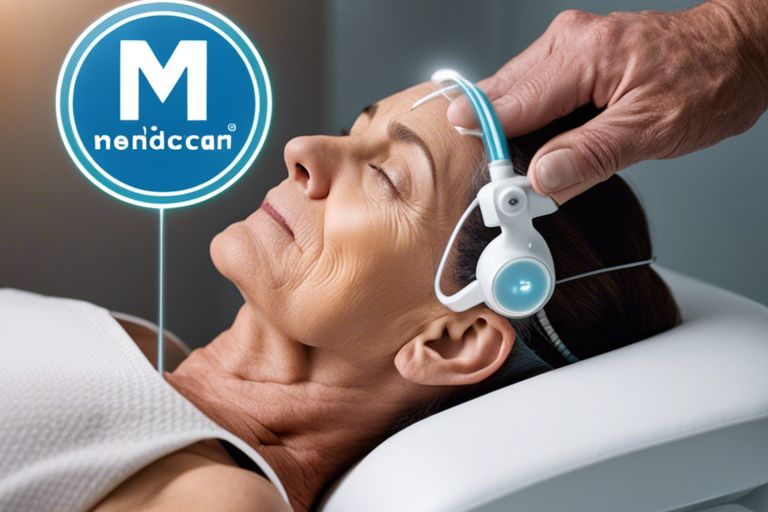55+ individuals looking for non-invasive treatment options for depression will be pleased to know that Transcranial Magnetic Stimulation (TMS) is covered by Medicare for those aged 55 and above. This innovative treatment has shown promising results for alleviating symptoms of depression in older adults, offering a safe and effective alternative for those seeking relief. Understanding the coverage options and benefits of TMS under Medicare can help individuals make informed decisions about their mental health care. Read on to discover the details of Medicare coverage for TMS and how it can benefit those in the 55+ age group.

Understanding TMS
While Transcranial Magnetic Stimulation (TMS) is a relatively new treatment, it has gained significant traction in recent years for its effectiveness in treating various mental health conditions.
What is Transcranial Magnetic Stimulation?
Transcranial Magnetic Stimulation (TMS) is a non-invasive procedure that uses magnetic fields to stimulate nerve cells in the brain. It is primarily used to treat depression, anxiety, and other mood disorders in individuals who have not responded well to other forms of treatment.
The Evolution of TMS as a Treatment Option
Magnetic stimulation of the brain has been used in various forms since the 1980s, but it wasn’t until the 21st century that TMS emerged as a viable treatment option for mental health disorders. The technology has since evolved, with newer devices offering more targeted and precise stimulation, resulting in better outcomes for patients.
This advancement in technology has significantly contributed to the growing acceptance of TMS as a safe and effective treatment for individuals suffering from depression, anxiety, and other mental health conditions. As more research is conducted and more individuals experience positive results, the use of TMS is expected to become even more widespread in the coming years.
Medicare and TMS Coverage
Any individual aged 55 and above who is considering Transcranial Magnetic Stimulation (TMS) therapy may wonder about Medicare coverage for this treatment. Medicare does cover TMS under certain conditions, and you can find more information about this on our website Does Medicare Cover Neurostar?
Eligibility Criteria for TMS Coverage
An individual must meet specific criteria to be eligible for TMS coverage under Medicare. This may include a diagnosis of major depressive disorder that has not responded to other treatments or a recommendation from a healthcare provider.
The Scope of TMS Coverage Under Medicare
On a broad scale, Medicare covers a portion of the costs associated with TMS therapy for eligible beneficiaries. This coverage typically includes a certain number of sessions over a specified period, but specific details may vary based on individual circumstances and Medicare coverage plans.
A detailed assessment of the individual’s condition and treatment needs is usually required to determine the extent of coverage provided by Medicare for TMS therapy. It’s important for beneficiaries to consult with their healthcare providers and Medicare representatives to fully understand the scope of coverage available to them.
Preparing for TMS Treatment
Steps to Obtain Medicare Coverage for TMS
With TMS being covered by Medicare for individuals aged 55 and up, the process to obtain coverage involves a few key steps. First, it’s important to consult with a healthcare provider to determine if TMS is a suitable treatment option for your condition. Once this is established, the provider can submit a request for TMS therapy to be covered by Medicare. The request will need to include relevant medical documentation supporting the necessity of TMS for your specific case.
What to Expect During TMS Therapy
Therapy with TMS involves non-invasive procedures that stimulate certain areas of the brain known to regulate mood. Patients can expect to sit comfortably in a chair while a magnetic coil is placed near the scalp. During the session, repetitive magnetic pulses are delivered to the targeted brain regions, which may cause a tapping sensation on the scalp. The entire procedure is conducted in an outpatient setting and typically does not require any anesthesia.
The Impact of TMS Coverage on the Elderly
Unlike Does Medicare Cover TMS Therapy, the coverage of Transcranial Magnetic Stimulation (TMS) by Medicare has significant implications for individuals aged 55 and above. This development opens up a world of possibilities for older adults seeking alternative treatments for mental health conditions.
Mental Health Benefits for Patients Aged 55 and Up
For individuals aged 55 and up, the inclusion of TMS therapy in Medicare coverage means access to a non-invasive and innovative treatment option for various mental health disorders such as depression and anxiety. TMS has shown promising results in alleviating symptoms and improving overall well-being in older patients without the side effects commonly associated with medications.
Cost-Effectiveness for Medicare and Beneficiaries
Medicare covering TMS therapy is not only advantageous for older adults but also cost-effective for the healthcare system and beneficiaries. By offering TMS as a covered service, Medicare can potentially reduce long-term healthcare costs associated with untreated mental health conditions in the elderly population. Additionally, beneficiaries can now explore this treatment option without incurring substantial out-of-pocket expenses, making quality mental healthcare more accessible.
Coverage of TMS by Medicare represents a groundbreaking step towards addressing mental health needs in the aging population, providing new opportunities for effective and affordable treatments for older adults.
To wrap up
As a reminder, Transcranial Magnetic Stimulation (TMS) is covered by Medicare for people ages 55 and up, making this innovative treatment option more accessible to a larger population. This coverage allows individuals suffering from depression or other mental health conditions to explore a non-invasive and effective therapy without financial barriers. By availing TMS through Medicare, older adults can take advantage of this cutting-edge technology to improve their mental well-being and quality of life. It is important to consult with a healthcare provider to determine if TMS is a suitable treatment option and to navigate the coverage process efficiently. Overall, the availability of Medicare coverage for TMS underscores the recognition of its benefits and effectiveness in addressing mental health issues among older individuals.
FAQ
Q: Is Transcranial Magnetic Stimulation (TMS) covered by Medicare for people ages 55 and up?
A: Yes, Medicare covers Transcranial Magnetic Stimulation (TMS) for individuals aged 55 and above under certain conditions.
Q: What are the criteria for Medicare coverage of TMS for individuals aged 55 and above?
A: To qualify for Medicare coverage of TMS, individuals aged 55 and above must have a diagnosis of Major Depressive Disorder (MDD) and have not responded adequately to at least one antidepressant medication in the current episode.
Q: Are there any limitations to Medicare coverage for TMS for individuals aged 55 and above?
A: Yes, Medicare coverage for TMS for individuals aged 55 and above is subject to certain limitations, such as the number of sessions allowed and specific medical necessity requirements that must be met.
Q: How can individuals aged 55 and above find out if they qualify for Medicare coverage for TMS?
A: Individuals aged 55 and above can consult with their healthcare provider to determine if they meet the criteria for Medicare coverage of TMS and to discuss the necessary steps for approval.
Q: Are there any out-of-pocket costs associated with Medicare coverage of TMS for individuals aged 55 and above?
A: While Medicare covers a portion of the cost of TMS for individuals aged 55 and above, there may still be out-of-pocket costs, such as copayments or deductibles, depending on the specific coverage plan.







